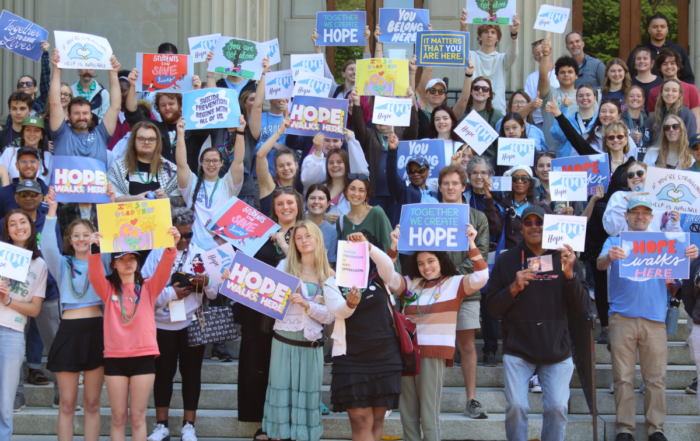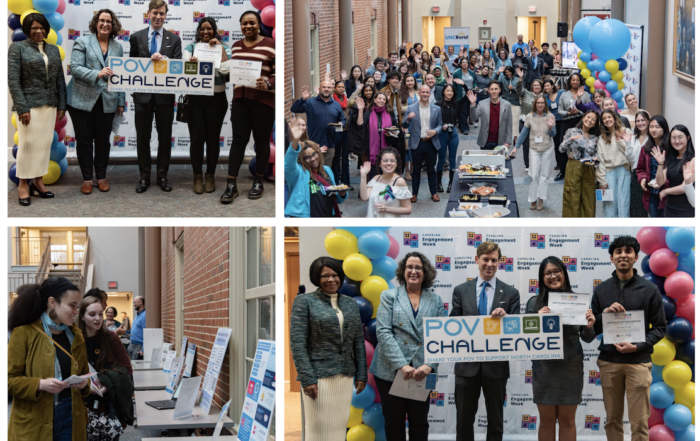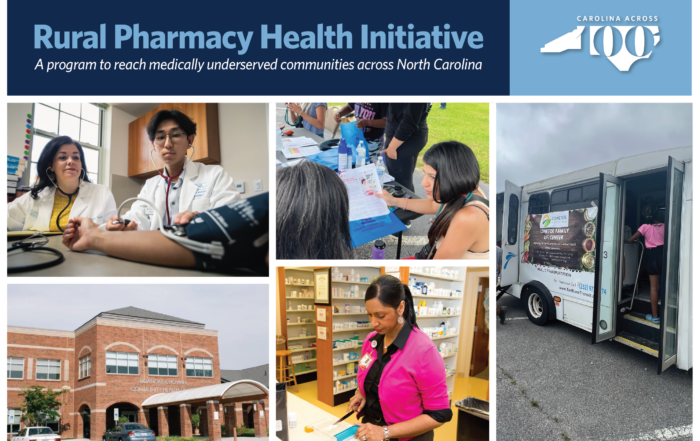Health
Serving and Supporting Veterans in North Carolina’s Communities
By Aimee McHale, Caroline Taheri, and Christina Labows
November 7, 2023

As the home of military bases that serve the country and the state from the air, on land and at sea, North Carolina has a long and proud military tradition that is as old as the nation itself. It is no wonder then that more than 700,000 Veterans call North Carolina home.
Veterans are an important part of North Carolina’s communities, with roughly 1 of every 13 North Carolinians – 7.9%, versus 6.9% of US citizens overall – having served. North Carolinas’ Veterans are teachers, pastors, lawyers, health care providers, tradespeople, elected officials and business owners. Most Americans recognize the importance of supporting our Veterans, with strong majorities of people across the political spectrum supporting Veteran services and increased spending to support those services.
The Veteran Mental Health Challenge
While support for Veterans is high, the evidence indicates that Veterans are at significantly greater risk of experiencing mental health crisis and suicidality than people who never served. Some reasons for this are related to Veterans’ service, but many others arise from the experience of transitioning from military to civilian life or their experiences in the communities where they live after their military service has ended.
Often, people both in and outside of the healthcare and Veteran communities focus on the need for specific clinical mental health supports and recovery services for people who have reached a point of crisis or attempted to take their own lives. While these approaches are important, communities can meet the needs of Veterans and their families in other ways. In doing so, communities can mitigate the risk that a Veteran will develop mental health issues in the first instance and increase the likelihood that a Veteran will be able to access clinical or non-clinical intervention well before a crisis arises.
The Building Veteran Healthy Communities (BVHC) project, led by faculty, staff and students from the Public Health Leadership Program at UNC’s Gillings School of Global Public Health and funded by the Durham VA Health Care System, is working to develop and support the means by which communities can do exactly those things.
Promoting Veteran Wellbeing at the Community Level
Communities play a critical role in promoting the health and wellbeing of Veterans and their families outside of clinical settings. Even if a Veteran is receiving clinical mental health counseling, the Veteran spends far more time in and is far more influenced by the community around them.
Many of the ways that communities can help Veterans are related to what are known in the public health field as the social determinants of health. Social determinants of health (SDoH) are the conditions in the environments where people are born, live, learn, work, play, worship, and age that affect a wide range of health, functional, and quality-of-life outcomes and risks to one’s health and wellbeing. Social determinants are not inherently good or bad — within each social determinant there are factors that can decrease a Veteran’s risk of mental health crisis or suicidality (called “protective factors”) and other factors within that same social determinant that can increase that risk (called “risk factors.”)
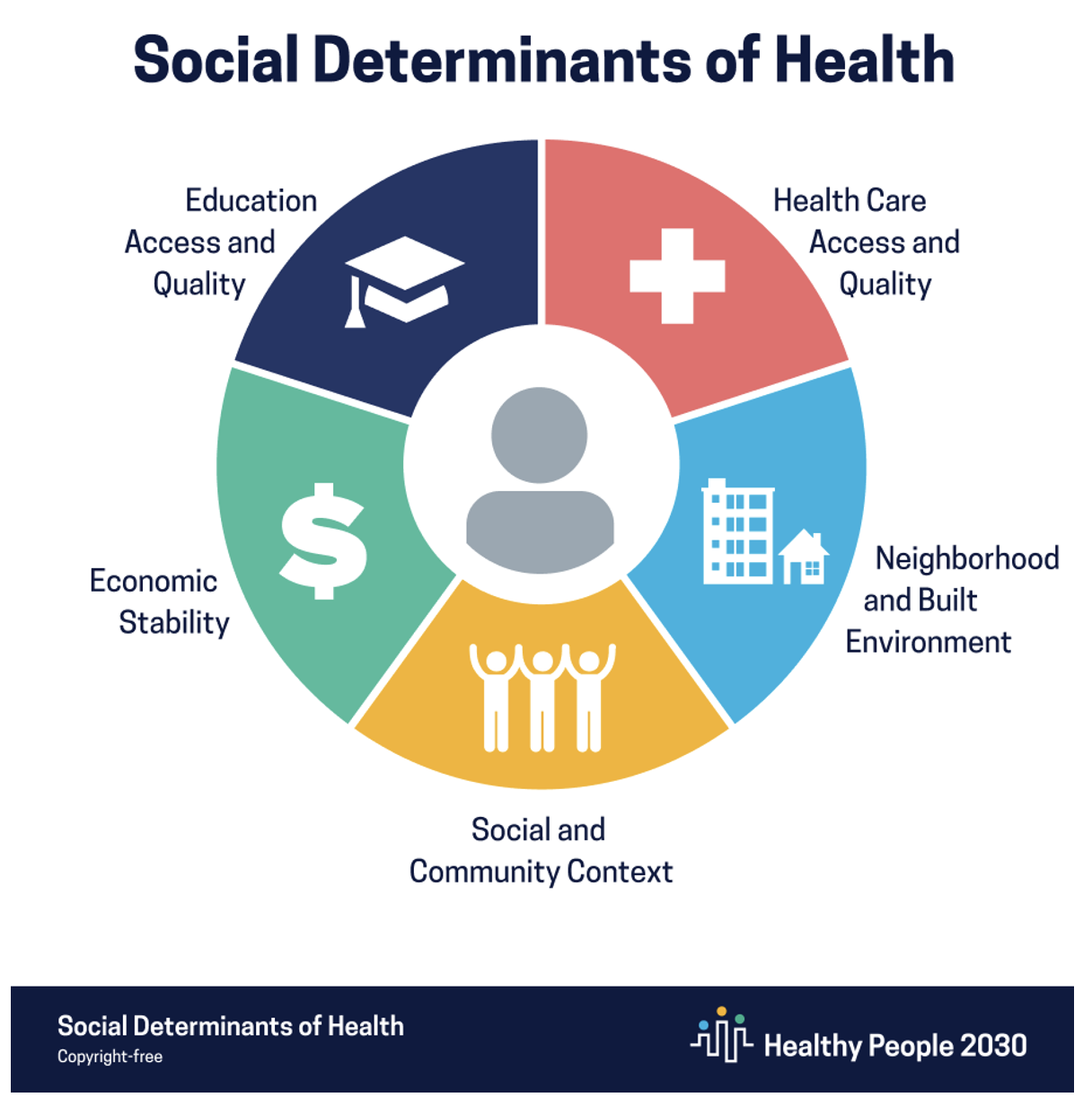
There are a variety of domains within the SDoH that have implications for Veterans and their families, and a variety of ways that SDoH operate to increase or decrease the risk of mental health crisis and suicidality. Some of the social determinants that affect Veterans include:
After leaving active-duty military service, many Veterans return to school to advance their education. Research suggests that Veterans with a college degree had lower odds of a suicide attempt than those without a degree, meaning that higher education itself is a protective factor. However, continuing one’s education after military service can also be stressful in ways that can put Veterans at greater risk, like when schools are not well-versed in process benefits through the GI Bill or don’t support a Veteran-Student organization. Whether and how educational institutions meet the needs of their Veteran students has a strong influence on whether the experience for Veterans who return to school is protective of Veterans or increases their risk of mental health issues.
Within the broader social determinant of economic stability, employment is a cornerstone of one’s ability to live comfortably and support a family. Employment status and workplace issues impact veteran mental health. In the workplace, benefits that improve the wellbeing of all employees (like health insurance, paid time off, and retirement contributions) are important for veterans, too. Employers can actively recruit Veterans and meet the needs of their Veteran employees by offering internships and apprenticeships, attending Veteran-focused job fairs, promoting a workplace culture to increase sense of belonging and combat negative Veteran stereotypes, and encouraging managers and human resource professionals to undergo training to better understand how they can better meet the needs of Veteran employees.
Accessible, safe, and affordable housing is foundational to a person’s and a family’s sense of well-being. While there are obvious mental health consequences to being homeless, even housing instability – where a person’s ability to obtain and/or afford housing is tenuous and uncertain – can play a role in a Veteran’s mental health. Relatedly, access to safe personal or public transportation is itself an important determinant of health and can facilitate or act as a barrier to access for other social determinants like health care, employment, education, recreation, and more. Communities that have a good supply of affordable housing, work to limit housing insecurity, and have a well-connected transportation system are healthier places for Veterans and their families to live.
Other factors and community organizations can also affect the health and well-being of Veterans and their families, including the presence of faith communities, whether Veterans are newly transitioning to civilian life, whether a community is rural or urban, access to healthy food and recreational opportunities, the presence of “moral injury,” and opportunities for Veterans to become engaged in the civic life of the communities where they live.
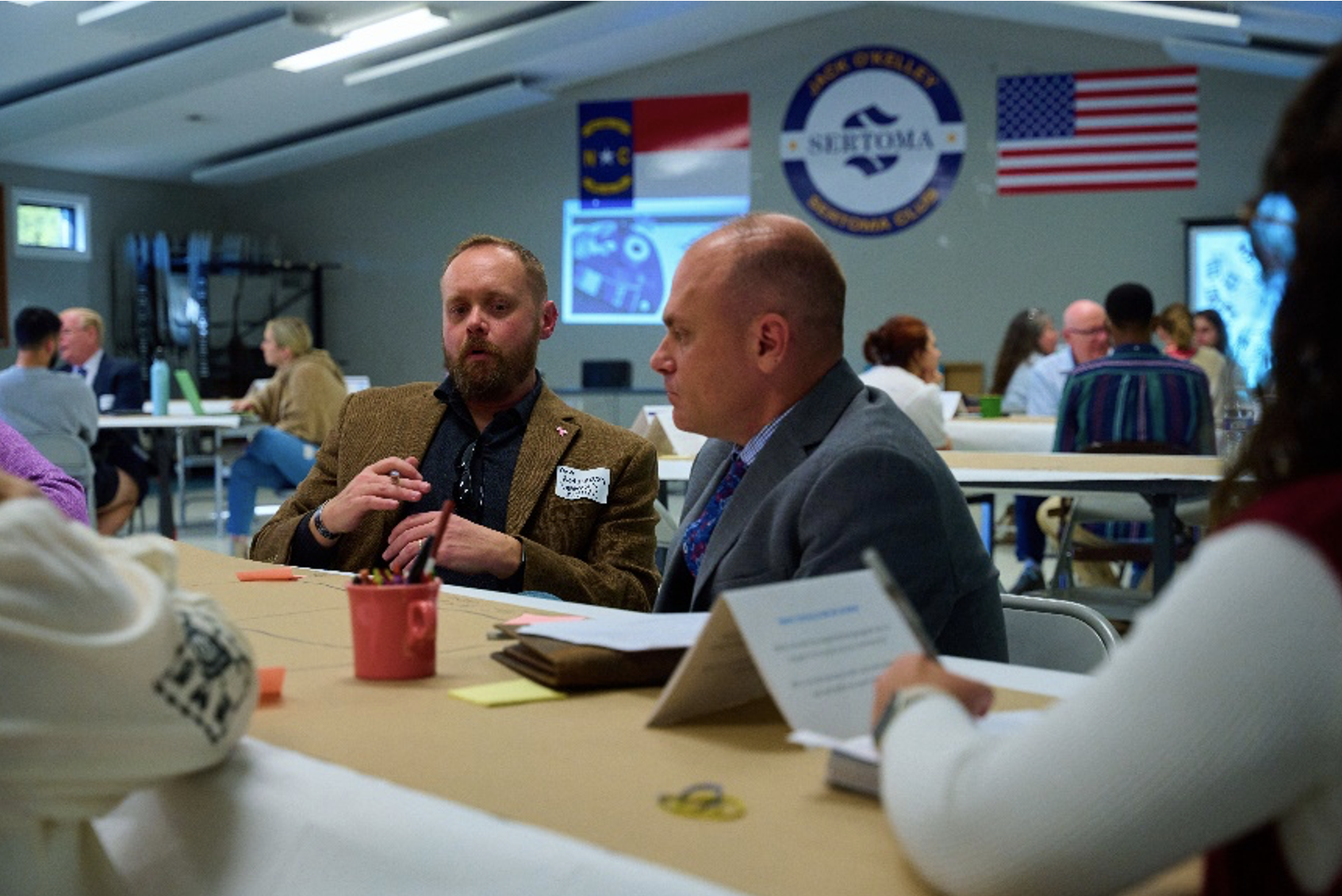
Building Veteran Health Communities project team met with community members and organizations and Veteran-serving organizations in Alamance County on October 12, 2023.
Helping Communities Become Veteran-Healthy
The Building Veteran Healthy Communities project is working to develop a body of knowledge and toolkits that will allow communities across North Carolina and nationwide to undertake initiatives to make their communities healthier places for Veterans and their families to live.
Part of our work involves engaging with communities to understand what they are already doing for their Veteran residents and meeting with Veterans and Veteran-serving organizations to better and more deeply understand Veterans and what their needs. By creating Veteran-healthy communities, communities become healthier places for everyone. Through BVHC’s system of community recognition and designation, Veterans will be able to identify communities that place their well-being as a primary community value and tangible commitment.
Every day, but especially as we celebrate Veterans Day, we hope that North Carolina’s communities will be eager to find ways to support and serve our Veterans who have served the nation and the state so well for so long.
Keep learning about North Carolina’s veterans and the community collaborations working to improve their mental health.
Carolina Across 100 is a five-year initiative charged by Chancellor Guskiewicz and housed at the School of Government’s ncIMPACT Initiative. This pan-University effort, guided by the Carolina Engagement Council, will form meaningful partnerships with communities in all 100 North Carolina counties to respond to challenges stemming from or exacerbated by COVID-19.


